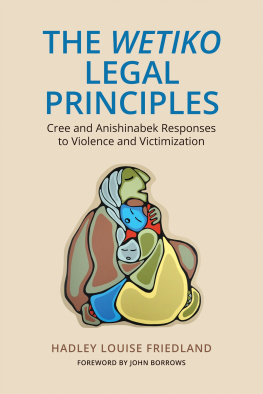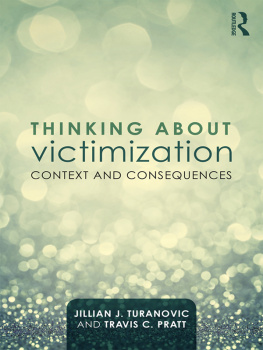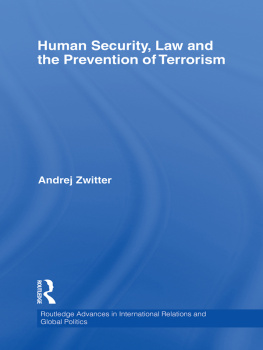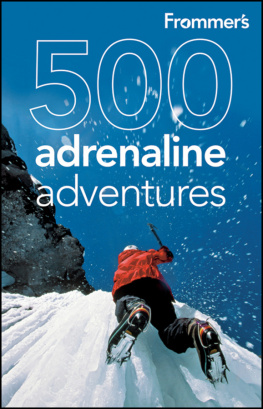THE WETIKO LEGAL PRINCIPLES
Cree and Anishinabek Responses to Violence and Victimization
In Cree and Anishinabek traditions, the wetiko is a cannibal giant or an evil spirit that possesses a person, rendering them monstrous. In The Wetiko Legal Principles, Hadley Louise Friedland explores how the concept of a wetiko can be used to address the unspeakable happenings that endanger the lives of many Indigenous children.
Friedland critically analyses Cree and Anishinabek stories and oral histories alongside current academic and legal literature to find solutions to the frightening rates of intimate violence and child victimization in Indigenous communities. She applies common-law legal analysis to these Indigenous stories and creates a framework for analysing them in terms of the legal principles that they contain. The author reveals similarities in thinking and theorizing about the dynamics of wetikos and offenders in cases of child sexual victimization. Friedlands respectful, strength-based, trauma-informed approach builds on the work of John Borrows and is the first to argue for a legal category derived from Indigenous legal traditions. The Wetiko Legal Principles provides much-needed direction for effectively applying Indigenous legal principles to contemporary social issues.
HADLEY LOUISE FRIEDLAND is an assistant professor in the Faculty of Law at the University of Alberta. She was the first Research Director of the University of Victorias Indigenous Law Research Unit.
HADLEY LOUISE FRIEDLAND
The Wetiko Legal Principles
Cree and Anishinabek Responses to Violence and Victimization
UNIVERSITY OF TORONTO PRESS
Toronto Buffalo London
University of Toronto Press 2018
Toronto Buffalo London
www.utorontopress.com
Printed in Canada
ISBN 978-1-4875-0256-0 (cloth)
ISBN 978-1-4875-2202-5 (paper)

Printed on acid-free, 100% post-consumer recycled paper with vegetable-based inks.
Library and Archives Canada Cataloguing in Publication
Friedland, Hadley Louise, 1976, author
The wetiko legal principles : Cree and Anishinabek responses to violence and victimization / Hadley Louise Friedland.
Includes bibliographical references.
ISBN 978-1-4875-0256-0 (cloth). ISBN 978-1-4875-2202-5 (paper)
1. Native children Abuse of Canada. 2. Native children Legal status, laws, etc. Canada. 3. Child abuse Law and legislation Canada. 4. Native peoples Canada Folklore. 5. Legal literature Canada. 6. Windigos. I. Title.
KIB422.F74 2018 362.7608997071 C2017-906328-6
This book has been published with the help of a grant from the Federation for the Humanities and Social Sciences, through the Awards to Scholarly Publications Program, using funds provided by the Social Sciences and Humanities Research Council of Canada.
University of Toronto Press acknowledges the financial assistance to its publishing program of the Canada Council for the Arts and the Ontario Arts Council, an agency of the Government of Ontario.

This book is dedicated to Nina Louise, whom I knew as a fiercely intelligent, inquisitive, and irrepressible thirteen-year-old, and who is now beyond all harm. And to Peacha, who taught me so much about courage, compassion, and perseverance.
... what if no lost child can be replaced?
Emil Fackenheim
Foreword
Professor Hadley Louise Friedland is one of the most innovative scholars working with Indigenous legal traditions in the world today. Her writing and teaching is nuanced and accessible. It is theoretically rich and exceptionally practical. Indigenous communities are drawing new insights from their legal inheritance through her work. For example, her affiliation with the University of Victorias Indigenous Law Research Unit is breaking new ground in revitalizing Indigenous law. Lawyers, law professors, and students are also gaining fresh views as they read and apply her research. I have taught from this book in its manuscript form for many years. Each time it is assigned, students report it is one of the best things they have read in law school. I agree. My own understanding of Cree and Anishinaabe law has been significantly enhanced through reading this work. At the same time my understanding of the common law itself has also grown from studying this book.
The question animating this work is: How do we protect the people we love from the people we love? This is an issue that affects all communities. Violence is most frequently perpetrated by those who live and work in close proximity to one another. Women and children bear the brunt of this abuse. This is a world-wide phenomenon. At the same time Indigenous peoples in North America suffer from higher rates of violence than the general population. Thus, intimate violence must be understood and addressed within an Indigenous framework too. As noted, this book takes up this task in brilliant ways.
Indigenous peoples were no strangers to violence prior to European colonization. Our stories make it clear that we have experienced traumatic family violence throughout history. Jealousy, pride, anger, resentment, hatred, bitterness, desperation, and hopelessness were part of Indigenous peoples lives before other peoples arrived on our shores. At the same time Indigenous peoples were also resilient, wise, caring, compassionate, thoughtful, patient, and kind. These conditions led to a rich catalogue of stories chronicling violence and our reactions to it. As such, these stories also demonstrate that we had responses to violence that attempted to prevent, punish, and rehabilitate those who caused these horrors.
Wetiko (or Wiindigok as they are called in Anishinaabemowin) are an example of one type of story which shows Indigenous experiences and responses to violence. As Professor Friedland so skilfully demonstrates in the following pages, wetiko are people who experience great stress and who in turn place considerable pressure on those around them. Not all wetiko are violent, though some are. Not all wetiko are dealt with harshly, though some are, as Indigenous law struggles like other legal systems to effectively deal with violence and the harm it causes to those who perpetrate and receive it. The point made in this book is that Indigenous peoples, through the stories they tell and actions they take, are a law-making people too.
Not all law flows from courts, legislatures, or parliaments. Law was made in varied local settings before nation-state formation. Law is also developed in these locations after state formation too, particularly in Indigenous contexts where state law is ineffective because of its imposed, foreign, authoritarian, or dismissive nature. The failure of state law to be persuasive and credible within Indigenous contexts propels people to turn to their own authorities, standards, measures, precedents, and norms to regulate behaviour and resolve disputes. The wetiko stories in this book are examples of this fact. As Professor Friedland demonstrates, they are intermingled with other sources and forms of law to address pressing legal problems.
Wetiko stories must be interpreted in contemporary contexts to ensure the safety and protection of families and communities is strengthened and enhanced. They must also be applied in ways which understand the gendered, multidisciplinary, and cultured contexts of law. Professor Friedland is careful to show how










